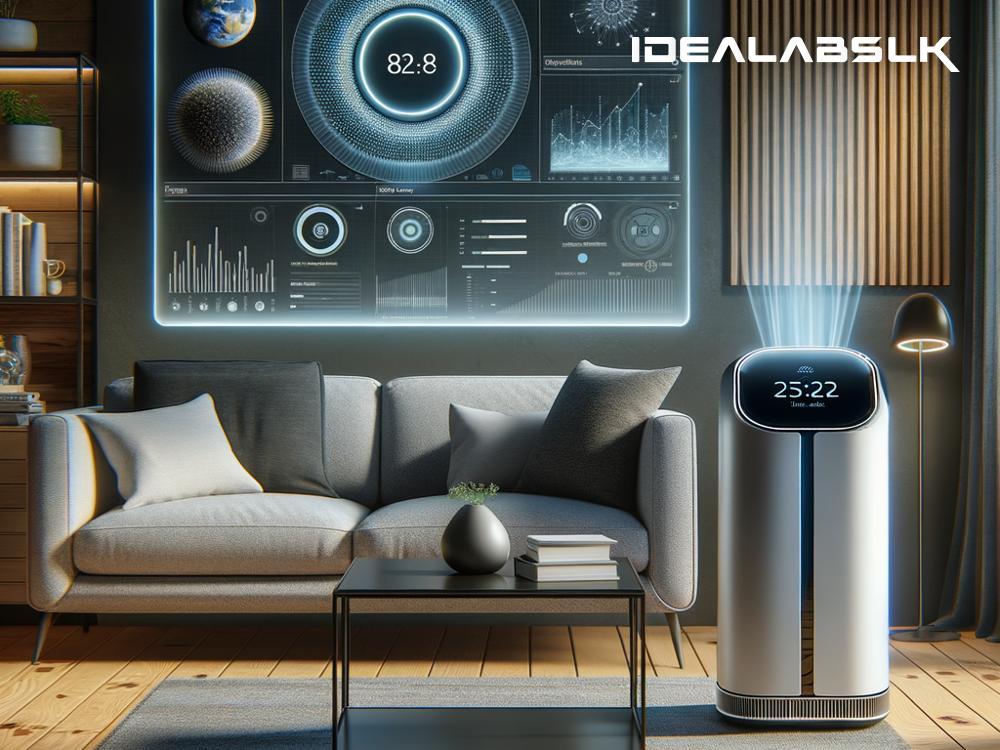Demystifying AI in Advanced Filtration Systems for Smart Homes
In the modern era, technology has significantly evolved, making our lives more comfortable and convenient. One of the groundbreaking advancements is the integration of Artificial Intelligence (AI) in smart homes, particularly in advanced filtration systems. But how exactly does AI work in this context, and what benefits does it bring to the table? Let's dive in and explore this innovative fusion of technology and home management in simple terms.
Understanding the Basics: What is AI?
Before we delve into the specifics, it's crucial to understand what AI actually is. Artificial Intelligence, in its simplest form, refers to machines or systems that mimic human intelligence to perform tasks and can iteratively improve themselves based on the information they collect. AI can learn, reason, and solve problems, making it an invaluable asset in various applications, including smart homes.
The Role of AI in Advanced Filtration Systems
Filtration systems are an essential part of many homes, ensuring that the air and water we consume are clean and safe. However, with the integration of AI, these systems have been elevated to perform more efficiently and intelligently. Here's how AI contributes to advanced filtration systems in smart homes:
-
Predictive Maintenance One of the most significant benefits of AI in filtration systems is its ability to predict when maintenance is needed before a breakdown occurs. AI algorithms can analyze data from the filtration system, like flow rates and contamination levels, and predict when filters need to be changed or serviced. This not only ensures consistent performance but also helps in avoiding unexpected failures.
-
Optimized Performance AI can dynamically adjust the filtration process based on various factors, such as the quality of incoming air or water, usage patterns, and environmental conditions. It means that the system can operate at optimal efficiency, saving energy and extending the lifespan of the filters. For instance, during times of low pollution, AI can reduce the system's intensity, conserving energy without compromising on air or water quality.
-
Quality Monitoring Advanced filtration systems equipped with AI continuously monitor the quality of air and water. They can detect contaminants and pollutants in real-time and adjust the filtration parameters accordingly to ensure the output remains within safe and desirable levels. This proactive approach significantly enhances the overall safety and comfort of home environments.
-
User Customization AI empowers users with unparalleled customization options. Based on user preferences and behavior, the system can adjust its operations. For example, if someone in the home has allergies, the filtration system can be tailored to ensure that allergens are aggressively filtered out. This level of personalization ensures that the needs of all household members are met.
-
Remote Monitoring and Control Through AI, homeowners can monitor and control their filtration systems remotely via smartphones or other devices. This includes receiving notifications about filter status, air or water quality, and system performance. It provides convenience and peace of mind, knowing that their home’s filtration system is functioning optimally, even when they're away.
The Future is Now
The integration of AI in advanced filtration systems represents a significant leap forward in making smart homes more efficient, safe, and tailored to individual needs. It signifies how technology can be used to enhance our daily lives significantly, particularly in areas as crucial as the air we breathe and the water we drink.
As AI continues to evolve, we can expect these systems to become even more intelligent, intuitive, and user-friendly. The potential for further innovation in this space is vast, and the implications for improving health and well-being in our living environments are immensely promising.
In conclusion, the fusion of AI with advanced filtration systems in smart homes is a prime example of how technology can serve our needs in sophisticated yet understandable ways. By leveraging AI, these systems ensure not only the efficiency and longevity of the filtration process but also enhance the overall quality of living, making our homes safer, smarter, and more responsive to our individual needs. As we move forward, the role of AI in our homes is set to increase, marking a new era of smart living that is both exciting and reassuring for homeowners around the globe.

